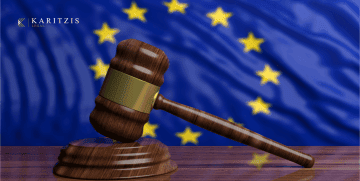
What is Forex?
Forex, also known as foreign exchange or FX, is the global market for trading national currencies against each other. It is the most liquid financial market in the world. Forex trading involves the simultaneous buying one currency and selling another know as currency pairs, and the value of these pairs fluctuate based on supply and demand, events, and bank policies.
The Forex Hub in Cyprus
Over the past two decades, Cyprus has emerged as one of the EU’s main hubs for forex and online trading services. This pattern is mainly attributed to the regulatory framework established by the Cyprus Securities and Exchange Commission *(CySEC), and the island’s favourable business friendly environment. CySEC does a great job at ensuring transparency and its stringent licensing requirements and supervision of forex brokers have instilled confidence among investors. Let’s not also forget the most important of all advantages – European passport rights – as a member state of the EU since 2004, Cyprus offers forex brokers the ability to function within the European Economic Area (EEA) under the MiFID II directive. This essentially allows them to offer services across all 27 EU member states with one single CySEC license. Furthermore, Cyprus offers an attractive corporate framework, with a highly competitive tax regime featuring the EU’s third lowest corporate tax rate at only 12.5% (Preceded by Hungary at 9% and Bulgaria at 10%).
Unregulated vs Regulated
However, within Cyprus’s forex market, there is an important legal distinction to make between regulated and unregulated forex brokers. The former represents CySEC licensed entities that obtained official authorisation from CySEC and meet stringent regulatory requirements under the Investment Services and Activities and Regulated Markets Law of 2017, in line with the EU MiFID II Directive.
They must:
- Separate client funds from company funds. Before a broker can begin operating, it must deposit and maintain a specified amount of capital (e.g., around €50.000- €730.000 depending on their activities). This is to ensure that the broker has enough money to cover its operational risks, absorb loses, and to protect clients.
- Clients are protected by the ICF (Investor Compensation Fund) up to €20.000. This also means that brokers ought to be members of the ICF and provide transparent information.
- Brokers are subject to strict AML (Anti-money Laundering) and KYC (Know Your Customer) obligations.
- Regular reporting, audits, and compliance checks
On the other hand, an unregulated forex broker is a broker that operates without oversight from recognised financial regulation authorities and do not adhere to standards or guidelines designed to protect traders. They are not accountable to organisations such as the FCA, ASIC, CySEC, FMA, and often establishing their companies in offshore markets (e.g., Mauritius). This means that they can set their own limits regarding leverage limits and fund security. Nonetheless, it is important to note that this is not illegal per se. They do have some pros such as:
- Increased leverage: this is appealing to traders that are aiming to enhance their positions (e.g., 500:1, 100:1).
- Reduced deposit limits: Unregulated forex brokers usually have a reduced deposit threshold, making it more accessible for novice traders without needing to invest significant amounts.
- Reduced trading expenses: by cutting regulatory costs, brokers can reduce spreads and trading expenses for their clients.
- Access to wider markets: Unregulated brokers can be the sole means for clients to access restricted markets that are prohibited by local regulatory authorities (e.g., CFDs, Crypto).
However, it is also crucial to mention the risks, which are significant (the list is non-exhaustive):
- No investor protection: They are not required to adhere to financial safeguards (e.g., segregated accounts) for client funds and this in turn increases the risk of mismanagement, misappropriation, or total loss of deposited funds in the event of an insolvency.
- Limited legal recourse: Traders often have little to no legal protection in cases of legal disputes (e.g., unfair practices, denial of withdrawals, platform manipulation)
- Risk of fraudulent activities: This is especially true in the case of Cyprus. Unregulated forex brokers are often associated with fraudulent operations, as there is no regulatory authority monitoring their activities. Traders may encounter scams, including Ponzi schemes, unreasonably high fees, or outright refusal to honour profits and withdrawals.
- Lack of transparency: No obligation to provide operational practises such as audited financial statements or maintaining liquidity standards.
The legality of unregulated forex brokers within
the Cyprus market
In 2025, CySEC listed 18 websites related to unlicensed brokers and continuously issues warnings against them since they are not locally licensed. Although mentioned above that UFBs are not illegal per se, in Cyprus they are not allowed to operate. This is pursuant to Article 5 of Law 87 (I)/2017 which states that:
“The provision of investment services and/or the performance of investment activities as a regular occupation or business is subject to prior authorisation … In relation to CIFs, such authorisation is granted by the Commission.”
This establishes the rule that if you want to provide investment services in or from Cyprus, you need CySEC’s authorisation. Moreover, article 40(1)(2) states that
‘A third-country firm intending to provide in the Republic, investment services or perform investment activities ….must establish a branch in the Republic’ and ‘The branches provided for in subsection (1) must acquire a prior authorisation, as the case may be, by the Commission under this Law.’
This means that if a non-EU country wants to offer investment or trading services in the Republic of Cyprus, it needs to get an official approval from CySEC and several conditions need to be met under art. 40(2)(a-f):
- The company legally authorised and regulated in its home country and CySEC regulators will check that the country has good anti-money laundering (AML) and investor protections
- Cyprus authorities must have agreements with the home country
- The branch ought to have enough available capital to operate
- Responsible manager/s
- The firm must participate in an investor compensation scheme for client protection in cases of insolvency
In practise this means that a company licensed in Mauritius for instance (or any other non-EU country), cannot just offer trading services to Cyprus clients or operate from Cyprus without opening a regulated branch and getting CySEC’s permission.
CySEC Investor Warning: Verify Broker Licensing and Severe Penalties for Non-Compliance
CySEC mentioned in a post that “CySEC urges investors to consult its website (www.cysec.gov.cy), before conducting business with investment firms, in order to ascertain the entities, which are licensed to provide investment services or investment activities.” It is also important to note that a lack of compliance can lead to an administrative fine by the Commission and Central Bank of €175.000-€350.000 as well as a fine of up to €700.000 or imprisonment not exceeding 5 years for failing to submit correct, complete and accurate information (L. 87(I)/2017, s.93).




